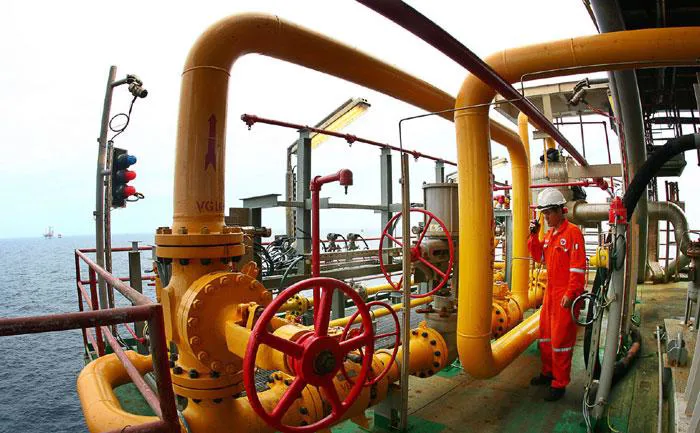Vietnam in need of investment in oil industry but not at all cost: Lawmakers
The majority of incentive policies in Vietnam’s petroleum industry have been mostly related to taxes.
Vietnam needs to attract more investment to the oil industry amid dwindling oil and gas reserves but not at all costs and should consider incentives beyond tax cuts.
| Production at Bach Ho's oil field. Photo: Hung Huy |
The view was shared among National Assembly deputies in a discussion on the revision of the Law on Petroleum on June 15.
Lawmaker Vu Thi Luu Mai from Hanoi noted oil and gas remained valuable resources, but there have been growing difficulties in the exploration and production process.
Meanwhile, revenues from crude oil declined from 4.6% in 2012 to around 2.6% in 2021. Mai referred to a proposal calling for a cut of the corporate income tax from 32% to 28% and waiving fees on using water resources, urging careful consideration at a time of volatile oil prices in the global market.
Sharing another idea, lawmaker Phan Duc Hieu from Thai Binh Province said most incentive policies in the petroleum industry have been related to taxes.
“Incentives should be more diversified in forms for Vietnam to attract high-quality investment projects,” Hieu said.
At present, countries around the world are discussing the possibility of a global minimum corporate tax rate of 15%, which makes it harder for multinationals to move profit to countries or territories with no, or very low taxes.
Hieu expected once this policy comes into force, it would have a major impact on Vietnam’s current attraction methods for investment and also on investors currently operating in Vietnam.
“The Government should have a comprehensive evaluation of such an impact on Vietnam’s FDI attraction policy,” he said, expressing concern that the attraction from tax-based incentive policies would gradually be diminished.
Sharing Hieu’s view, Lawmaker Vu Tien Loc from Hanoi said changes in Vietnam’s investment policies, especially in the fields of petroleum, are necessary to maintain the country’s competitiveness in attracting foreign investment.
On this issue, Vice Minister of Industry and Trade Dang Hoang An said the formulation of Vietnam’s incentive policies had taken into consideration those of regional countries with similar oil production capacity.
An, however, noted the ministry would consider more regulation in terms of investment incentives, such as in the process of contractor selection and terms for application.
“The goal is to have diversified incentive policies other than taxation to attract investment capital into the petroleum industry for higher competitiveness and attraction of the maritime investment environment,” he said.












